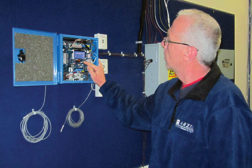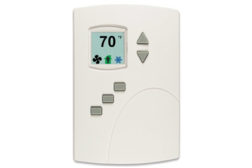Commercial Controls
April 16, 2014: ABB and Philips Join Forces in Commercial Building Automation
ABB Building Automation Will Connect Seamlessly with Philips Lighting Systems
April 16, 2014
April 11, 2014: Advanced Sensors for Smart Buildings to Reach Nearly $3.7 Billion by 2020
New Sensors Are Deploying on Smaller Platforms That Connect Wirelessly
April 11, 2014
April 7, 2014: Smart Building Technology Market to Reach $21.9 Billion in 2018
Forecast Projects a 28.4 Percent Compound Annual Growth Rate
April 7, 2014
March 31, 2014: Building Automation Projects Moving Toward Convergence onto a Common Platform
Almost Half of Today’s Projects Involve Multiple Legacy Control Protocols That Don’t Interoperate
March 31, 2014
March 28, 2014: Building Automation Systems Are Being Transformed by Digital Technology
Building Automation Has Reached a Tipping Point
March 28, 2014
March 26, 2014: Energy Management Market for Hospitality Industry to Double by 2020
Technology Is Moving from Room-Centric HVAC Control to Property-Wide Energy Management
March 26, 2014
March 24, 2014: Netop Provides Secure Remote Access for Building Automation, HVAC
Provides Port-Specific Access, Which Makes It Ideal for Use by Vendors
March 24, 2014
Copyright ©2024. All Rights Reserved BNP Media.
Design, CMS, Hosting & Web Development :: ePublishing



